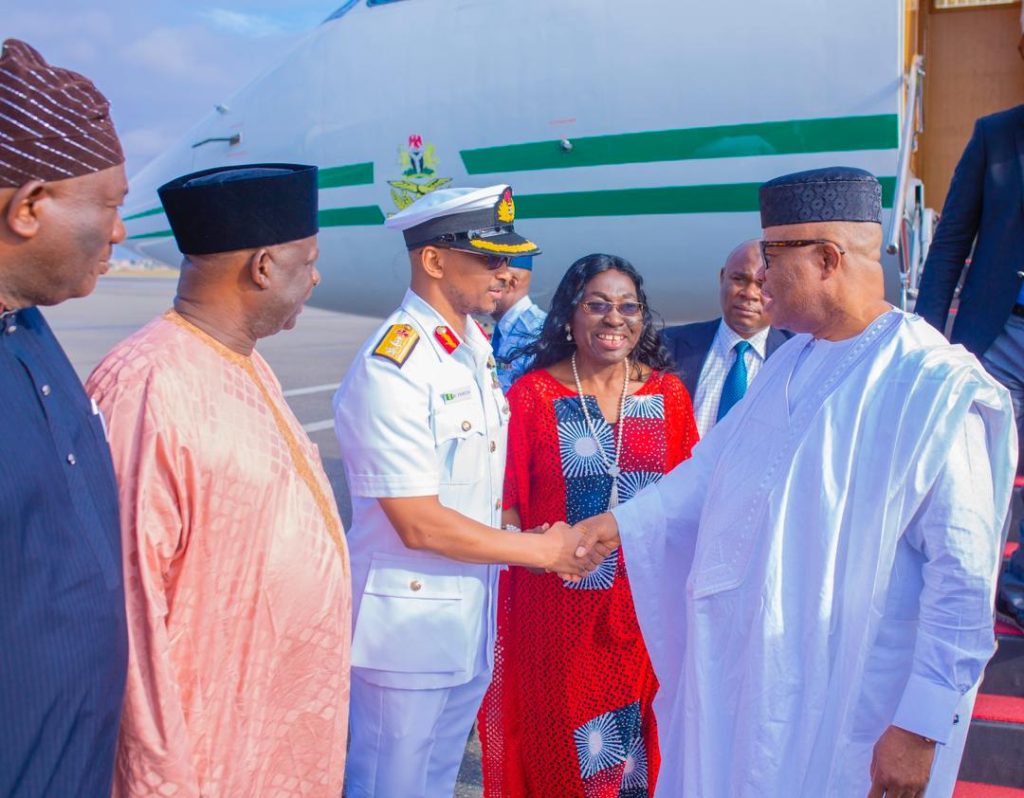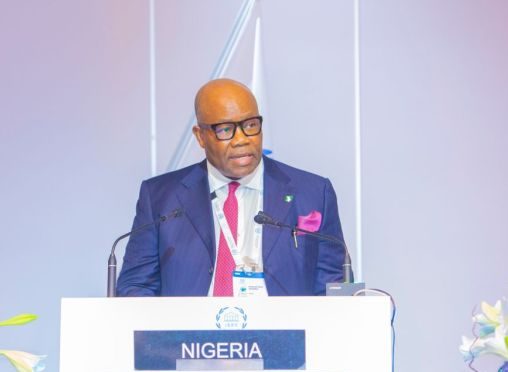Senator Godswill Obot Akpabio’s emergence as President of the 10th Senate on 13th June, 2023 raised high expectations. Not just because of his track record of high service delivery in his previous public offices, but also because Akpabio is not a stranger in the National Assembly, having been elected as the Minority Leader of the Senate in his first appearance in 2015. The Upper chamber is a familiar terrain for the Akwa Ibom North-West Senator.
However, for the Senate President, who is Chairman of the National Assembly, to meet the expectations, he needs unity and stability not just at the Upper Chamber but at the National Assembly. Akpabio’s election to the coveted seat was keenly contested. At the end of the contest, God’s will prevailed.
With the formal inauguration of the 10th Senate, the new Senate President’s first task was to unite the chamber following the divisions that inevitably arose from the leadership contest. In his inaugural address to his Distinguished colleague Senators shortly after being handed the gavel, Akpabio said: “I will continue to be one among you and I will work with you, for you, beside you. I will be a Senate President that will stand for all. I want to extend my hand of fellowship to you. I take it that every single senator voted for me. And what has happened here today is historic.”
With those soothing words, Akpabio gently signposted his leadership direction. With the full complements of its body of Principal Officers, the flight of the 10th Senate took off smoothly. However, the flight ran into a slight turbulence before reaching cruising level.
The first experience was when Adamawa Senator Elisha Abbo raised an alarm over the Constitution of the Senate Standing Committees. He alleged that his fellow northern Senators had been unfairly treated. And for this, he just stopped short of calling for the head of Akpabio. Abbo was actually not speaking for himself alone. He was the Secretary of the Northern Senators Forum. The truth is that all Senators cannot be expected to be satisfied with the allocation of the leadership positions of the Standing Committees. The exercise has always led to misgivings that had to be deftly managed by the Senate leadership.
Following the complaint, Akpabio, with his listening ears, tweaked the composition and even created more Committees to pacify some ranking Senators displeased with the original arrangement. He weathered the storm. At the end of the day, Senator Elisha Abbo, who spat fire in the newspapers in the morning, recanted on Television, with apologies, at sunset.
Senator Abdul Ahmed Ningi would later create a bigger controversy in March this year. Ningi alleged in an interview with BBC that the 2024 Budget was duplicated and padded to the tune of N3.7 trillion. That was a serious allegation. Ningi is a ranking Senator, who had held principal offices in the Senate. Besides, he was also the Chairman of the Northern Senators Forum. So his allegation could not be ignored.

In his usual way, Akpabio tabled the matter at a plenary session beamed live on Television. At the session, Senator Solomon Adeola Olamilekan, Chairman of the Appropriation Committee, gave a lucid explanation to what seemed unclear to Ningi in the budget. Olamilekan’s explanation should have been sufficient to douse the tension and settle the matter once and for all but Ningi remained defiant. This forced the Leader of the Senate, Michael Opeyemi Bamidele, to intervene and return fire for fire. Bamidele suspected brinkmanship by some opponents who had vowed to ensure that Akpabio was removed before his first anniversary as Senate President. Opeyemi described the unsubstantiated allegation of budget duplication as a “civilian coup” attempt against the leadership of the Senate which had been aborted.
The Ningi saga was another litmus test for Akpabio. But his leadership qualities and experience again came to the fore in the way the Senate transparently and effectively handled the matter. All through the session, Akpabio was calm and decisive in his interventions. Eventually, Ningi was suspended for three months for violations of legislative rules, misconduct and unethical behaviour in his BBC interview on the 2024 Budget. The suspension was lifted about two weeks before the expiration of the three months. This followed a motion moved on 28th May, 2024 (and with apologies, on Ningi’s behalf), by Senate Minority Leader, Abba Moro. Ningi eventually returned to his seat at the Senate Chamber on Tuesday, 4th June, 2024, without holding a grudge against anybody.
The 10th Senate under Akpabio has remained focused and resolute in the discharge of its constitutional roles and pursuit of its Legislative Agenda since its inauguration. For instance, it promptly screened the ministerial nominees of the President. Senators were scheduled to proceed on a short break when the list of the nominees was submitted but they deferred their holiday by more than one week to conclude the confirmation process. This they did in national interest.
While still screening the ministerial nominees, the Senate received an executive communication from President Bola Ahmed Tinubu with respect to the Economic Community of West African States (ECOWAS). It was about a political crisis in the Republic of Niger caused by the overthrow of the democratically elected government of that neighbouring country in a military coup on 26 July, 2023. This necessitated an extra-ordinary summit of the ECOWAS, chaired by Nigeria. Tinubu needed to inform the Senate about the far reaching and sensitive decisions taken by ECOWAS on the crisis. In a letter to the Senate, the President stated: “Following the unfortunate political situation in Niger Republic culminating in the overthrow of its President, ECOWAS under my leadership condemned the coup in its entirety and resolved to seek the return of the democratically elected government in a bid to restore peace.”
According to the letter, which the Senate President read in Plenary on 4th August, 2023, one of the options on ECOWAS’ table was the “deployment of personnel for military intervention to enforce compliance of the military Junta in Niger should they remain recalcitrant.” Under the Nigerian constitution, the President cannot deploy troops outside the borders without an approval of the Senate. Even though the Letter from the President did not expressly seek an approval of the Senate, not a few people believed that such request was implied in the letter as Nigeria keyed in to the plans outlined by the ECOWAS. Section 5(4)(b) of the Nigerian Constitution states: “Except with the prior approval of the Senate, no member of the Armed Forces of the Federation shall be deployed on combat duty outside Nigeria.”
A day after the letter was read, which was a Saturday, Akpabio led the Senate into an executive session. Rising from the closed door session, Akpabio announced, at Plenary, the Senate’s response to the Presidential communication. He said, among other things, that: “The Senate calls on the President of the Federal Republic of Nigeria and Chairman of ECOWAS to further encourage other leaders of ECOWAS to strengthen the political and diplomatic options and other means to resolve the political logjam in Niger Republic.” That was a tacit rejection of the military option contemplated by ECOWAS.
That golden advice by the Senate was a defining moment for Akpabio’s leadership. ECOWAS cannot deploy troops without Nigeria. So the response of the Nigerian Senate was widely acknowledged as instrumental to ECOWAS’ abandoning the military option and restricting itself to diplomatic solutions instead. Thus, the Senate decision averted a war of unpredictable implications for the sub-region and Nigeria.
On the international scene, Akpabio, in October 2023, led the Nigerian delegation to the 147th General Assembly of the Inter-Parliamentary Union(IPU) which held in Luanda, Angola. It was his first appearance at the meeting as the Senate President. At that meeting, he was elected into the Executive Committee of IPU. The last time Nigeria had that privilege was in 1964. That was a great feat and triumph of International diplomacy for Nigeria.
Similarly in March 2024, Akpabio was at the head of Nigeria’s delegation to the 148th Assembly of IPU in Geneva, Switzerland. At that meeting, he made Nigeria proud by his spectacular contribution with a passionate call on the warring parties in Gaza for a ceasefire. In April 2024 as well, the IPU nominated Akpabio as a member of the Preparatory Committee for the Sixth World Conference of Speakers of Parliament (2025). It was in pursuant in that role that he was invited to Geneva the following month for the first meeting of the Committee at IPU Headquarters. READ ALSO:
- 2Baba Deletes Divorce-related Posts, Video On IG
- CAF Names Nine Stadiums For AFCON 2025
- Speed Darlington Reportedly Escapes Assassination Attempt
- Cubana Chiefpriest Reveals Issue Behind His Fight With Burna Boy
- Trump’s New World Order is Here! By Emmanuel Onwubiko
Akpabio has applied his leadership acumen to engender stability in the red chamber, which has enabled the Distinguished Senators to focus on their statutory responsibilities. Bills and motions are being passed without distractions. Akpabio’s tenacity, constant and prompt interventions facilitated the completion of the renovation of the Senate Chamber which is now in use. The project was started in July 2022 during the tenure of the Ninth National Assembly but the contractors thrice reneged on completion dates before they eventually delivered in April 2024.
Also as Chairman of the National Assembly, Akpabio has smooth and robust working relationship with his counterpart in the green chamber, the Speaker of the House of Representatives, Rt. Hon. Tajudeen Abbas. This has, no doubt, manifested in a productive legislative business by the two Chambers in the past one year.
A year at the saddle, Akpabio has lived up to his reputation as a political leader and administrator of uncommon capabilities and has not disappointed the expectations of Nigerians.
***Awoniyi, Media Aide to Senate President, writes from Abuja


